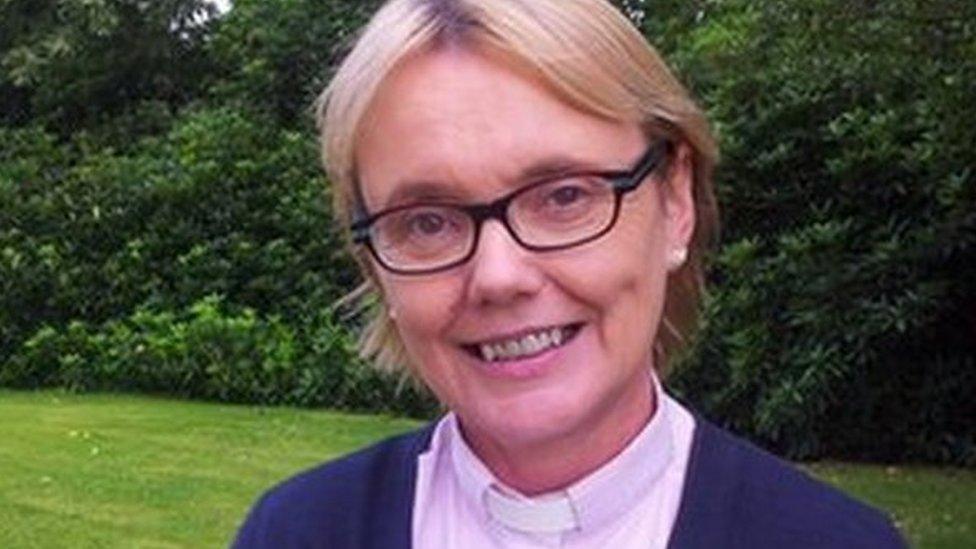Church of Ireland's ruling body set for historic meeting
- Published
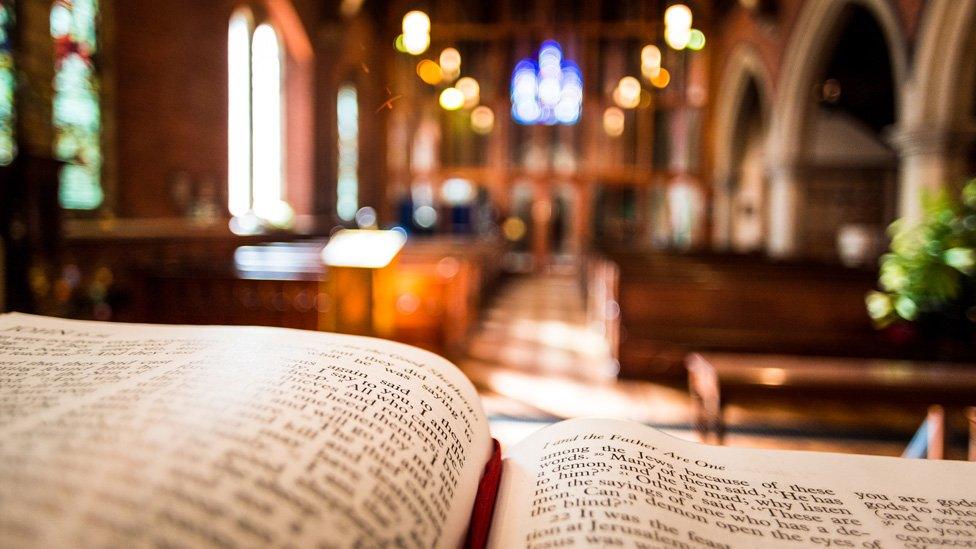
The Church of Ireland's governing body meets in Londonderry this week to discuss, debate and determine the future running of the church.
It is the first time in its 150-plus year history the General Synod is being held in Derry.
Bishop of Derry and Raphoe, the Right Reverend Ken Good said it was an honour and blessing to host the event.
He said there were few more fitting locations "for this great Church occasion".
"This diocese has made a remarkable contribution to the spread of Christianity on this island and beyond. St Columba was born here - in Gartan.
"St Columb's Cathedral - where Thursday's opening Service of Holy Communion will take place - was the first Anglican cathedral built in these islands after the Reformation," he said.
He said the Synod was also an opportunity for people to see Derry's "real face and to experience the warmth and hospitality of its citizens".
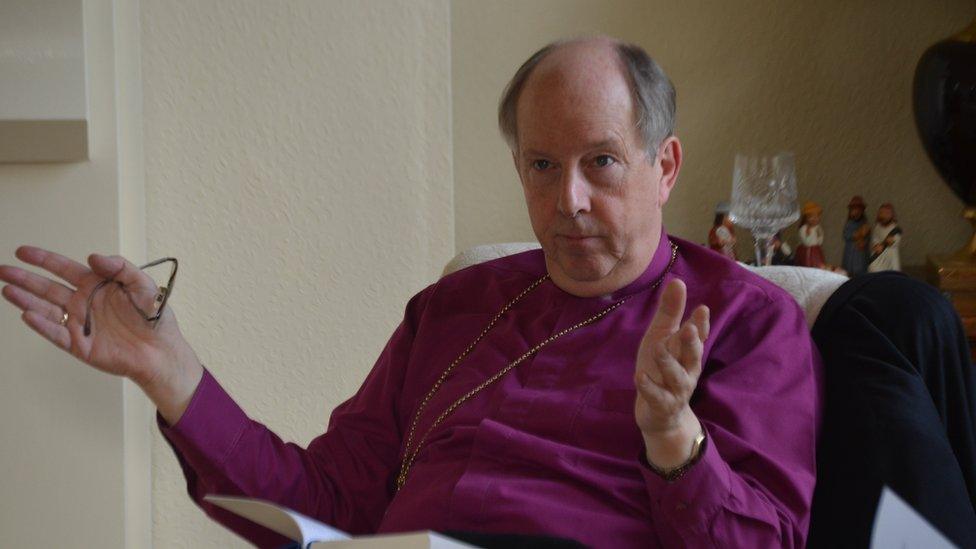
Bishop Good has served the Diocese of Derry and Raphoe since 2002. He is due to retire later this year.
But what exactly is the synod, what does it do and what will delegates discuss in Derry?
What is the General Synod?
The synod is the legislative and governing body deciding on legislation for the church.
Church committees present reports which are then debated by synod members.
Bills are put forward for discussion and decision. If approved they become acts or statutes in the church's constitution.
Less formal proposals are submitted as motions. If approved they become resolutions.
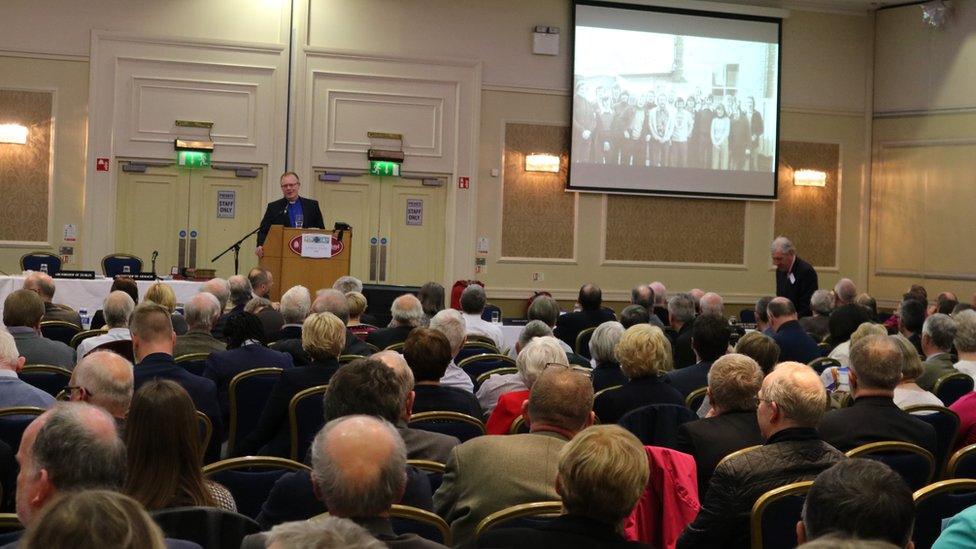
Delegates of last year's synod came together in Armagh
When was it established?
The General Synod first met in 1871, as part of the Disestablishment of the Church of Ireland.
Before this, the Church of Ireland was the established 'state' church in Ireland and its policies were decided in Parliament.
Who attends the synod and how often does it meet?
Held annually each May, the synod has 660 members including the 12-strong House of Bishops - the serving archbishop and bishops in Ireland.
The other 648 delegates are known as the House of Representatives, with one third of its members being clergy, the rest lay people elected by their diocesan synods for a three-year period.
How does it work and what powers does it have?
The General Synod has the power 'to make all such regulations as shall be necessary for the order, good government, and efficiency of the Church of Ireland".
This includes decisions on the Church's structures, including territorial arrangements - it currently has 12 dioceses - and committees. It also takes decisions on the Church's liturgy and official viewpoints.
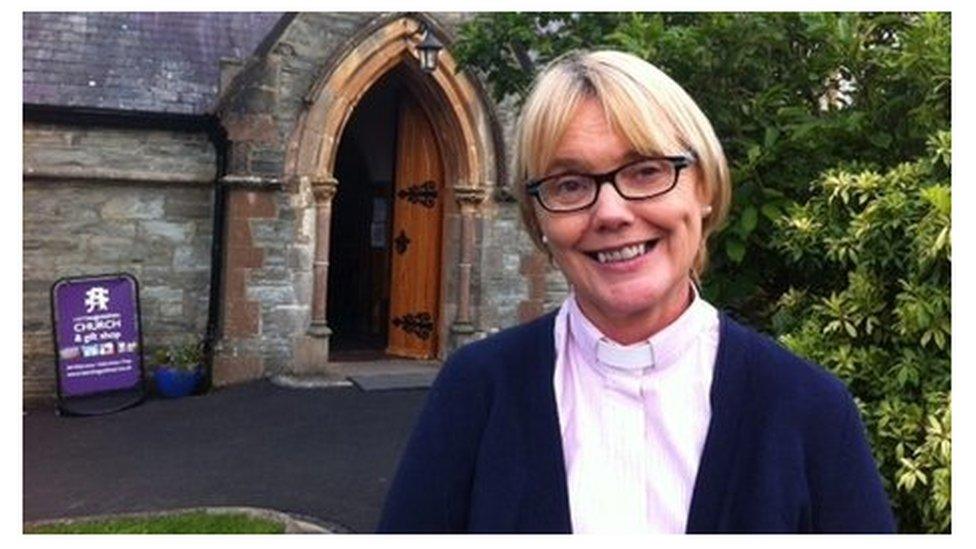
Pat Storey is the first female Anglican bishop in the UK and Ireland
What are notable recent synod decisions?
The Church of Ireland gave approval for women bishops in 1990 when the General Synod passed legislation to ordain women priests and bishops. That led to the Reverend Pat Storey, a rector in Londonderry, being elected by the Church of Ireland as Bishop of Meath and Kildare, in the Republic of Ireland in 2013.
In 2017, a private members motion requesting the House of Bishops investigate a means to develop local pastoral arrangements for public prayer and thanksgiving at key moments in the lives of same-sex couples was defeated at General Synod.
Last year, in a statement read to the synod, the House of Bishops said there is "little appetite" across the entire island to redefine marriage.
In 2015, the Republic of Ireland voted overwhelmingly to legalise same-sex marriage in a historic referendum.
Unlike England, Scotland, Wales and the Republic of Ireland, same-sex marriage is not legal in Northern Ireland.
What's on the agenda this time?
Nineteen motions have been put forward for the synod in Derry.
They include proposals on support for persecuted Christians, data protection in churches, and the pathway for ordaining full-time ministers in the Church of Ireland.
Reports on education, young people's issues, and inter-church and inter-faith relations will be discussed.
Three bills will be considered by members:
• Holy Communion for persons who are unable to be present at a service where this is being celebrated;
• A service of prayer and naming and funeral service in cases of miscarriage, stillbirth and neonatal death; and
• Plans for a future merger of two dioceses in the west of Ireland.
The Church of Ireland Primate, Archbishop Richard Clarke, will make a presidential address on Thursday, the first of the three synod days.
- Published28 November 2018
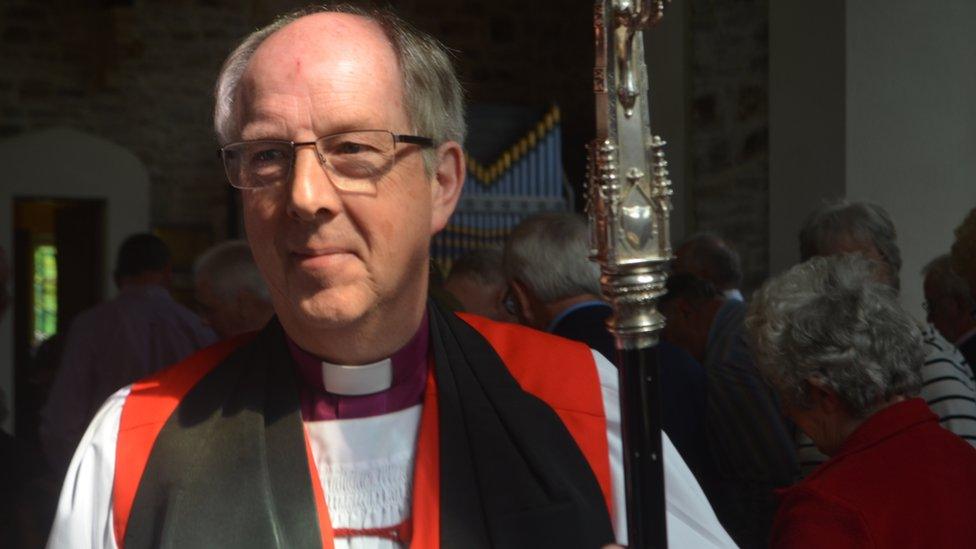
- Published8 September 2017
